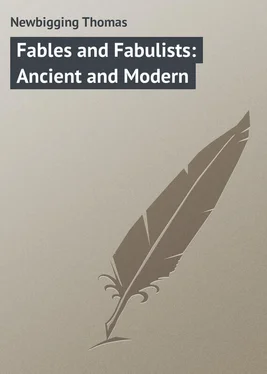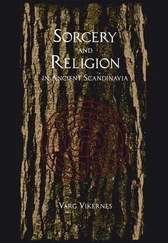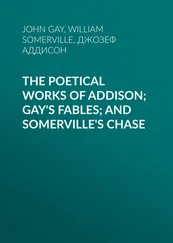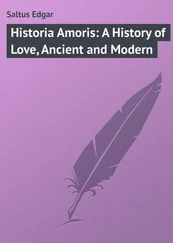Thomas Newbigging - Fables and Fabulists - Ancient and Modern
Здесь есть возможность читать онлайн «Thomas Newbigging - Fables and Fabulists - Ancient and Modern» — ознакомительный отрывок электронной книги совершенно бесплатно, а после прочтения отрывка купить полную версию. В некоторых случаях можно слушать аудио, скачать через торрент в формате fb2 и присутствует краткое содержание. Жанр: foreign_prose, на английском языке. Описание произведения, (предисловие) а так же отзывы посетителей доступны на портале библиотеки ЛибКат.
- Название:Fables and Fabulists: Ancient and Modern
- Автор:
- Жанр:
- Год:неизвестен
- ISBN:нет данных
- Рейтинг книги:5 / 5. Голосов: 1
-
Избранное:Добавить в избранное
- Отзывы:
-
Ваша оценка:
- 100
- 1
- 2
- 3
- 4
- 5
Fables and Fabulists: Ancient and Modern: краткое содержание, описание и аннотация
Предлагаем к чтению аннотацию, описание, краткое содержание или предисловие (зависит от того, что написал сам автор книги «Fables and Fabulists: Ancient and Modern»). Если вы не нашли необходимую информацию о книге — напишите в комментариях, мы постараемся отыскать её.
Fables and Fabulists: Ancient and Modern — читать онлайн ознакомительный отрывок
Ниже представлен текст книги, разбитый по страницам. Система сохранения места последней прочитанной страницы, позволяет с удобством читать онлайн бесплатно книгу «Fables and Fabulists: Ancient and Modern», без необходимости каждый раз заново искать на чём Вы остановились. Поставьте закладку, и сможете в любой момент перейти на страницу, на которой закончили чтение.
Интервал:
Закладка:
The humour of a good fable is a fine lubricant to the temper. Sarcasm, irony, even direct criticism, are in place in the fable, but humour is its saving grace. Without this it cannot be classed in the first order. Wanting in this quality, the fables of some writers who have attempted them are flat, stale and unprofitable. Humour in the fable is the gilding of the pill. It is like the effervescing quality in champagne, the subtle flavour in old port.
It may be questioned whether a fable has ever the full immediate effect intended. Men are loath to apply the moral to their own case, though they have no difficulty in applying it to the case of others – even to their best acquaintances and friends. For example, take the present company, the present company of my readers – it is usual, by the way, to except 'the present company,' but we will be rash enough, even at the risk of castigation, to break the rule – take, then, the present company in illustration of our point. Who among us would admit for a moment that we are the counterpart or human representative of the fox with its low cunning, the loquacious jackdaw, the silly goose, the ungrateful viper, the crow to be cajoled by flattery, not to mention the egregious donkey? 'Satire,' says an acute writer, 16 16 Swift: Preface to 'The Battle of the Books.'
'is a sort of glass wherein beholders do generally discover everybody's face but their own.' Or, to parody a line of Young, 'All men think all men peccable but themselves.' To be sure, we might be willing, modestly perhaps, to admit that we who are singers can emulate the nightingale; that we even possess some of the – call it shrewdness, of the fox; the faithful character of the honest dog; vie in dignity of manners and bearing with the stately lion. But all that is a matter of course; the noble traits we possess are so self-evident that none excepting the incorrigibly blind or prejudiced will be found to dispute them! So that the admonishing fable contains no lesson for any of us, but should be seriously taken to heart, with a view to their reformation, by certain persons whom we all know. That view of the question, however, need not be further pursued.
CHAPTER V
LESSONS TAUGHT BY FABLES
'The tale that I relate
This lesson seems to carry.'
In the earlier ages of the world's history fables were invented for the edification of men and women. This was so in the palmiest days of Greek, Roman and Arabian or Saracenic civilization. In these later days fables are generally assumed to be more for the delectation of children than adults. This change of auditory need not be regretted; it has its marked advantages. The lesson which the fable inculcates is indelibly stamped on the mind of the child, and has an influence, less or more, on his or her career during life.
Jean Jacques Rousseau is the only writer of eminence who has inveighed against this use of the fable, but his remarks are by no means convincing. He accounted them lies without the 'medicinable quality,' and reprobated their employment in the instruction of youth. 'Fables,' says Rousseau, 'may amuse men, but the truth must be told to children.' His animadversion had special reference to the fables of La Fontaine, and doubtless some of these, and the morals deduced from them, are open to objection; but to condemn fables in general on this account is surely the height of unreason.
A greater than Rousseau had, long before, given expression in cogent language to the worth of the fable as a vehicle of instruction for youth. Plato, whilst excluding the mythical stories of Hesiod and Homer from the curriculum of his 'Republic' – that perfect commonwealth, in depicting which he lavished all the resources of his wisdom and genius – advised mothers and nurses to repeat selected fables to their children, so as to mould and give direction to their young and tender minds.
Phædrus, again, in the prologue to his fables, says —
''Tis but a play to form the youth
By fiction in the cause of truth,'
so that his view of the question also was just the very antipodes of that of the French philosopher.
Quintilian urges 17 17 'Institutes of Oratory,' book i., chap. ix.
that 'boys should learn to relate orally the fables of Æsop, which follow next after the nurse's stories.' True, he recommends this with a view to initiating them in the rudiments of the art of speaking; but he would not have inculcated the use of fables for children for even this secondary purpose, if he had dreamt for a moment they would have had a bad effect on their minds.
Rousseau, with all his knowledge of human character and his power of imagination, had a matter-of-fact vein running through his mind, which led him to entertain the mistaken view that the influence of fables on the juvenile mind was objectionable. Cowper, who was no mean writer of fables himself, with his clear common sense, broad natural instincts, and mother wit – in which Rousseau was lacking – saw the unwisdom of the philosopher's conclusions, and satirized his views in the well-known lines:
'I shall not ask Jean Jacques Rousseau
If birds confabulate or no;
'Tis clear that they were always able
To hold discourse, at least in fable;
And e'en the child, who knows no better
Than to interpret by the letter
A story of a cock and bull,
Must have a most uncommon skull.' 18 18 'Pairing Time Anticipated.'
It is no exaggeration to assert that the effect which fables and their lessons have had on the people is incalculable. They have been read and rehearsed and pondered in all ages, and by thousands whom no other class of literature could attract. The story and its moral (in the Æsopian fable at least) are obvious to the dullest comprehension, and they cling to the memory like the limpet to the rock, and find their application in all the concerns of daily life.
But it is not the illiterate alone that have profited by the fable; all classes have been affected by its lesson. We are all apt scholars when the fable is the schoolmaster. There is no class of the community that has not come under its sway. It has penetrated to the highest stratum of society equally with the humblest, and may be credited with an influence as wide and far-reaching as the sublimest moral treatise which the human intellect has produced.
The epic and the novel (fables of a kind), like some paintings, cover a wide canvas, and the details are not always easily grasped and remembered; but the true fable is a story in miniature which we take in at a glance, and stow away for after use in a small corner of our memory.
We have the 'successful villain' in the fable as sometimes on the stage; and it may be a question whether the tendency of this is not rather to encourage dissimulation in certain ill-constituted minds, than to inculcate virtue. One of Northcote's fables, The Elephant and the Fox , will exemplify what we mean.
'A grave and judicious elephant entering into argument with a pert fox, who insisted upon his superior powers of persuasion, which the elephant would not allow, it was at length agreed between them that whichever attracted the most attention from his auditors by his eloquence should be deemed the victor. At a certain appointed time a great assembly of animals attended the trial, and the elephant was allowed to speak first. He with eloquence spoke of the high importance of ever adhering with strictness to justice and to truth; also of the happiness which resulted from controlling the passions, of the dignity of patience, the inhospitable and hateful nature of selfishness, and the odiousness of cruelty and carnage.
'The pert fox, perceiving the audience not to be much amused by the discourse of the elephant, made no ceremony, but interrupted the oration by giving a farcical account of all his mischievous tricks and hairbreadth escapes, the success of his cunning, and his adroit contrivances to extricate himself from harm – all which so delighted the assembly, that the elephant was soon left, in the midst of his wise advice, without a single auditor near him; for they one and all with eagerness thronged to hear the diverting follies and knaveries of the fox, who, of course, was in the end declared the victor.'
Читать дальшеИнтервал:
Закладка:
Похожие книги на «Fables and Fabulists: Ancient and Modern»
Представляем Вашему вниманию похожие книги на «Fables and Fabulists: Ancient and Modern» списком для выбора. Мы отобрали схожую по названию и смыслу литературу в надежде предоставить читателям больше вариантов отыскать новые, интересные, ещё непрочитанные произведения.
Обсуждение, отзывы о книге «Fables and Fabulists: Ancient and Modern» и просто собственные мнения читателей. Оставьте ваши комментарии, напишите, что Вы думаете о произведении, его смысле или главных героях. Укажите что конкретно понравилось, а что нет, и почему Вы так считаете.












